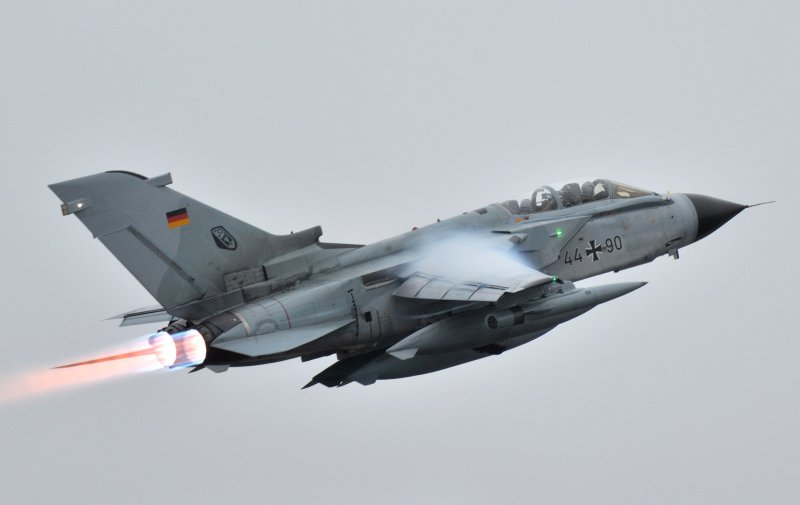Coalition forces strike oil installations tied to the Islamic State terror group in Syria. File Photo by Harald Tittle/EPA
July 7 (UPI) -- Forces engaged with the so-called Islamic State terror group in Iraq and Syria hit militant-controlled oil installations in the latest salvo, a coalition said.
Coalition military forces operating under Operation Inherent Resolve reported several dozen strikes against targets associated with the group known variably as the Islamic State of Iraq and Syria or the Islamic State of Iraq and the Levant.
"Near Dayr Az Zawr [in Syria], six strikes destroyed 34 ISIS oil barrels, eight oil stills, five construction items, five oil trucks, four front-end loaders, three oil storage tanks, an oil distillation tank and a well-head," a strike statement read. "On July 4, near Dayr Az Zawr, Syria, five strikes destroyed four ISIS oil separators, four oil storage tanks, two well-heads, two oil pipe junctions, an oil still and a refinery."
A 2014 report from consultant firm IHS found oil was fueling the war chest for the group calling itself the Islamic State by more than $2 million per day, based on that year's price for oil. The report found that oil fuels the terrorist group's "war machine" by powering military vehicles and financing its activities through revenue on the black market.
IHS estimated the oil production controlled by the Islamic State was worth an estimated $800 million per year. Experts from RAND Corp., meanwhile, testified before U.S. lawmakers on the full complexity of the ISIS smuggling ring in the region, though U.S. Treasury Department officials said financial sanctions on specific targets and coordination with regional allies was taking a toll on revenue streams for ISIS.
By 2015, the U.S. Defense Department said the terrorist group was no longer relying on oil as its main source of revenue to fund its operations.
This week, the New York Times, citing several Russian media outlets, reported that Russian companies are securing profits from oil and gas wells seized by the terrorist group. The report suggests the profits are incentive for companies tied to Russian security contractors.















